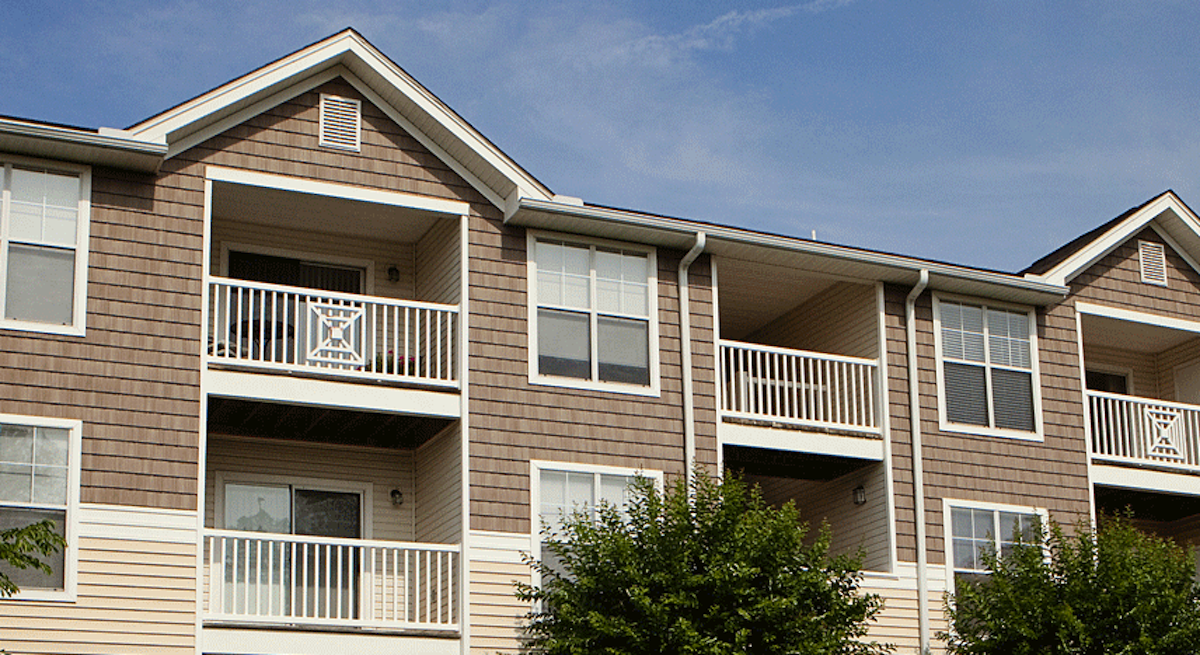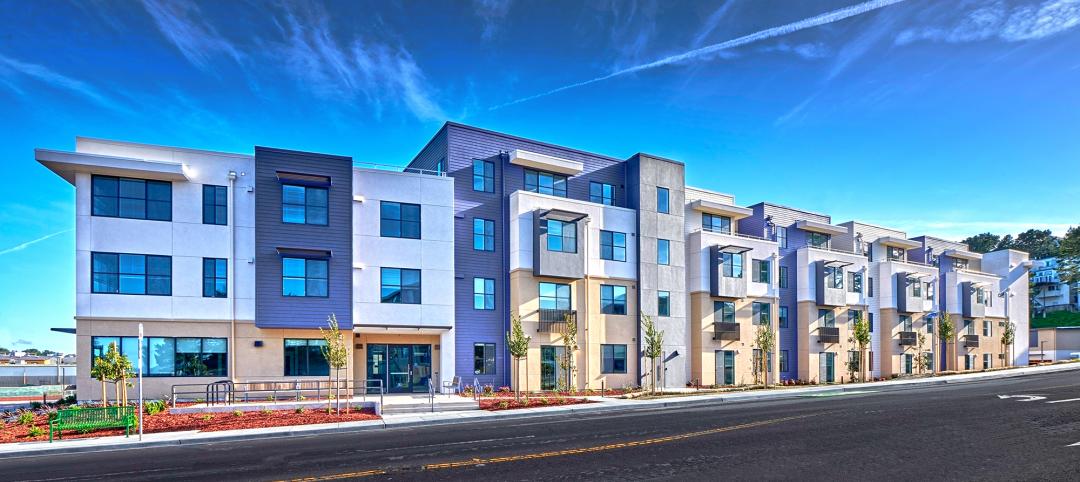When investor John Goense started Response Team 1 in 2010 by acquiring BKA General Contractors in Nashville, he anticipated that his company, as it expanded, would focus primarily on single-family disaster restoration projects from fires, flooding, snowstorms and other such events that were covered by homeowners insurance.
The early performance of that business certainly indicated that it was on the right track. Its revenue from 2010 to 2013 increased by 1,124%, making Response Team 1 one America’s fastest-growing private companies, according to Inc. magazine. It currently claims to be the country’s largest single-family restoration business.
During that four-year period, Response Team 1 also developed what Goense, its CEO and chairman, says was “a small, in-house renovation business” for commercial clients that had either bought a property or wanted to upgrade an existing building. Then, last November, the Wheeling, Ill.-based company acquired The Renovation Group (TRG) in Brentwood, Tenn. This deal catapulted Response Team 1 into the ranks of the country’s top multifamily renovators.
Multifamily and commercial projects now account for 50% of Response Team 1’s revenue, which last year hit $173 million.
The biggest commercial project Response Team 1 has taken on so far has been the restoration of a courthouse in Wisconsin. Its multifamily work, according to its website, includes fire and smoke damage restoration, mold removal and remediation, water damage repair, and remodeling. Most of its projects are for midrise apartment and college campus buildings. “We’re more focused on working with property owners and managers than with HOAs,” Goense explains. And campus projects are mostly restorations. (Arizona State University is one of its largest customers.)
Response Team 1, which operates 25 offices that serve 34 states in the West, Midwest, and Southeast, is one of several businesses owned by Chicago-based Goense & Company, a private equity investment firm that Goense and his partner Erik Bloom formed in 2008. Its investment strategy has been to target small to midsize companies with market niches or that operate in fragmented industries. The firm’s portfolio, according to its website, includes a document imaging dealer; a pharmacy automation company; electrical, plumbing, and drywall contractors; and a provider of maintenance and installation services for voice, data, wireless, paging, and point of sale systems for retailers.
Darren Magda, who started TRG as a deck builder 20 years ago and shifted to multifamily renovation a decade ago, says he became interested it joining forces with a larger enterprise when clients started asking TRG to do jobs on their apartment buildings in places like Texas and California, well beyond its geographic comfort zone. Magda says that because Response Team 1 has a “national footprint,” as well as a local presence in places like Denver and Phoenix, TRG can coordinate labor and project management for clients through with buildings in different parts of the country.
Response Team 1 merged TRG with CAPRO, a multifamily renovation company based in Raleigh, N.C., that Response Team 1 had spun off several years earlier. Combined, the two renovators generated about $24 million in revenue last year, and Magda—who stayed on as a vice president with Response Team 1—thinks that figure could rise by at least 50% in 2015 under Response Team 1’s corporate umbrella.
Goense expects Response Team 1, in total, to generate about $200 million from its existing offices in 2015, and another $50 million to $100 million from mergers and acquisitions. “I look at our service area, and it only represents 12% if the U.S. population.” When he spoke with BD+C in early March, Response Team 1 had just established a fourth region, the Mid Atlantic, that would serve residential and commercial customers in Philadelphia and southern New Jersey, Baltimore, and Washington D.C.
Response Team 1’s expansion is being driven primarily by its regional footprint; Goense’s goal is for his company to serve every 1 million-plus market within its regions.
Like other construction companies, Response Team 1’s ability to grow is contingent on maintaining a reliable workforce. “That’s one of the hardest things for businesses like ours,” he says. However, Goense states that his company “has a very active flow of people coming to us.” Response Team 1 recently set up an internal “university” for training purposes. And, he adds, “we use a lot of subs,” and has steady access to them because “we pay fairly and on time.”
Related Stories
Multifamily Housing | Jan 12, 2023
8 noteworthy multifamily housing projects, including a refuge for unsheltered youth
Join us on a nationwide tour of notable new multifamily projects from around the country.
Senior Living Design | Jan 10, 2023
8 senior living communities that provide residents with memory care
Here are eight senior living communities that offer their residents memory care, an important service for residents who need this specialized care.
Government Buildings | Jan 9, 2023
Blackstone, Starwood among real estate giants urging President Biden to repurpose unused federal office space for housing
The Real Estate Roundtable, a group including major real estate firms such as Brookfield Properties, Blackstone, Empire State Realty Trust, Starwood Capital, as well as multiple major banks and CRE professional organizations, recently sent a letter to President Joe Biden on the implications of remote work within the federal government.
Multifamily Housing | Jan 9, 2023
New York City advances plan to build 500,000 new housing units
After New York Mayor Eric Adams announced a “Moonshot” plan to build 500,000 new housing units over the next 10 years in early December, he moved quickly to jumpstart the process.
Sustainability | Jan 9, 2023
Innovative solutions emerge to address New York’s new greenhouse gas law
New York City’s Local Law 97, an ambitious climate plan that includes fines for owners of large buildings that don’t significantly reduce carbon emissions, has spawned innovations to address the law’s provisions.
Fire and Life Safety | Jan 9, 2023
Why lithium-ion batteries pose fire safety concerns for buildings
Lithium-ion batteries have become the dominant technology in phones, laptops, scooters, electric bikes, electric vehicles, and large-scale battery energy storage facilities. Here’s what you need to know about the fire safety concerns they pose for building owners and occupants.
Multifamily Housing | Dec 29, 2022
San Jose is largest U.S. city to abolish minimum parking for new housing
San Jose, Calif., recently became the largest U.S. city to strike down minimum parking requirements for new housing development. The city reversed zoning devised in the 1950s that reputedly gave it the worst sprawl of parking space in northern California.
Codes and Standards | Dec 29, 2022
New York City multifamily owners concerned over fires caused by e-bikes
In 2022, there have been nearly 200 fires and six deaths in New York City caused by lithium-ion batteries used in mobility devices such as electric bikes and scooters.
Multifamily Housing | Dec 27, 2022
Traverse Apartments brings 281 sorely needed rental units to the Denver area
Traverse Apartments offers 281 units, designed by KTGY, is located in Lakewood, Colo.
Multifamily Housing | Dec 21, 2022
Bay Area school district builds 122 affordable apartments for faculty and staff
The 122 affordable apartments at 705 Serramonte, Daly City, Calif., were set aside not for faculty and staff at Jefferson Union High School District.

















